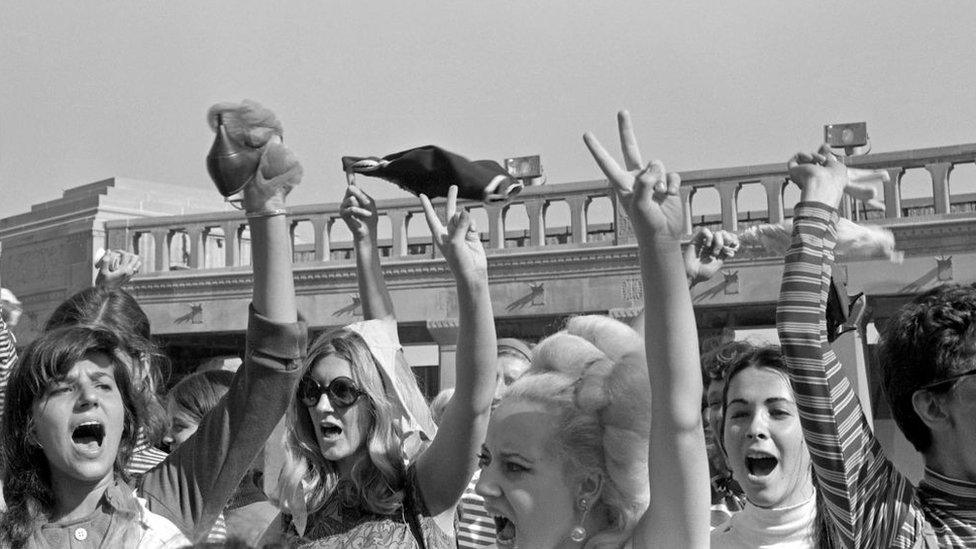Newcastle plaque commemorates 'first English feminist'
- Published
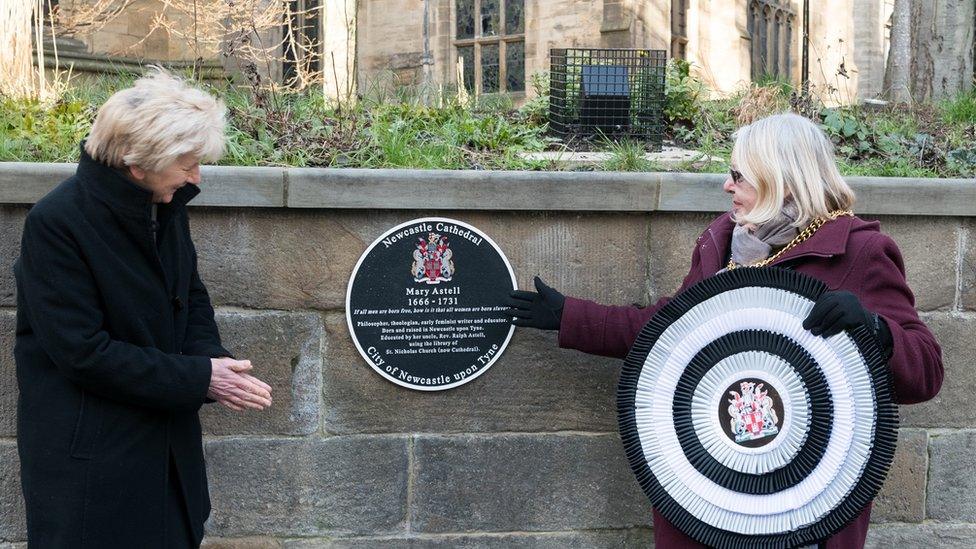
Mary Astell's was connected to Newcastle Cathedral by her uncle who was a church curate
A woman described as the "first English feminist" has been remembered with a plaque.
Mary Astell, a writer, poet and equal opportunities advocate was honoured in Newcastle where she grew up.
Born in 1666, she left for London in her 20s and set up a charity school for girls at Chelsea's Royal Hospital.
Having had no formal education herself, she published work arguing that women were just as rational as men and just as deserving of an education.
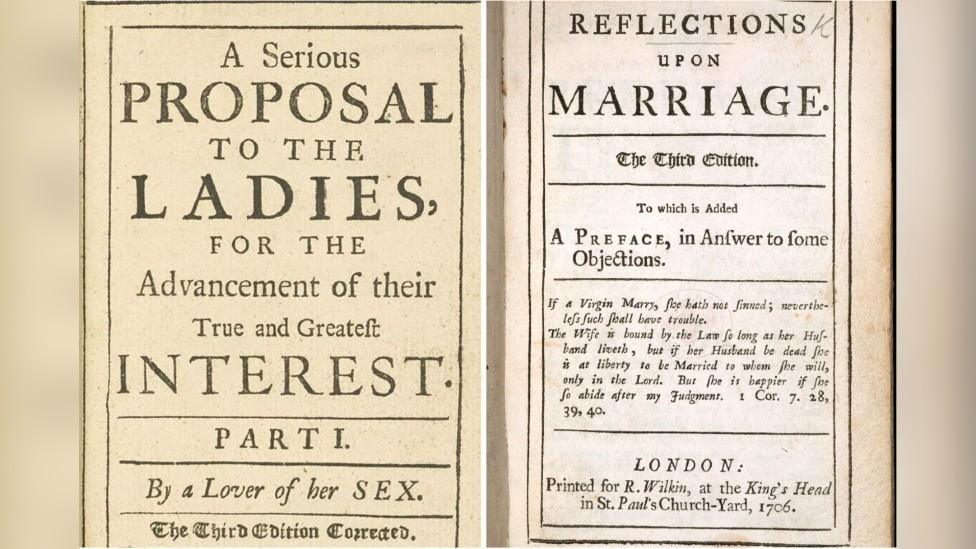
Mary Astell's writing challenged the leading thinkers of the day
In 1694 her anonymously published first book, A Serious Proposal to the Ladies, established her as an intellectual, making arguments about women's equality two centuries before the feminist political movement argued for the right to vote.
Six years later she published Some Reflections on Marriage, where she argued the education of women contributed to a happier marriage.
She believed women were not truly free unless they had marriages where husbands and wives were more equal, were friends and were supportive of each other.
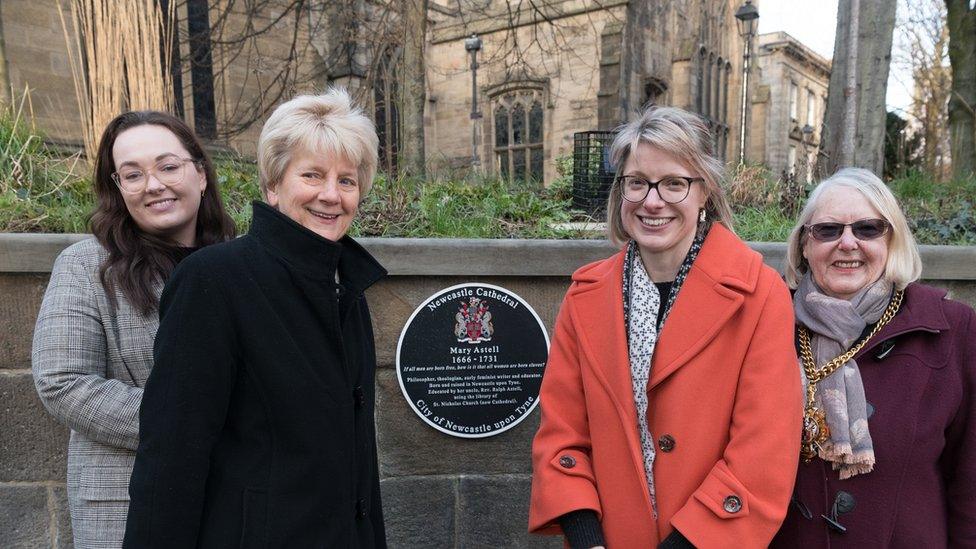
The plaque was unveiled on International Women's Day
Dr Claudine van Hensbergen, from Northumbria University (pictured above in red coat) who led the project for plaque, said she hoped it would be the first step in a project to commemorate many more inspirational women.
"Our hope is that this will inspire young girls and women to pursue their own ambitions and fulfil their potential," she said.
She added Astell was not a radical thinker in every way - although she developed her beliefs and proved she was not afraid to join national debates, she was not looking to turn society upside down.
"Astell was doing it from within the establishment - a committed Anglican, member and supporter of the Tory Party and a supporter of the monarchy - she took on the huge questions and was not afraid to argue with people. She challenged the leading thinkers of the day," she said.

Follow BBC North East & Cumbria on Twitter, external, Facebook, external and Instagram, external. Send your story ideas to northeastandcumbria@bbc.co.uk, external.
- Published8 August 2021
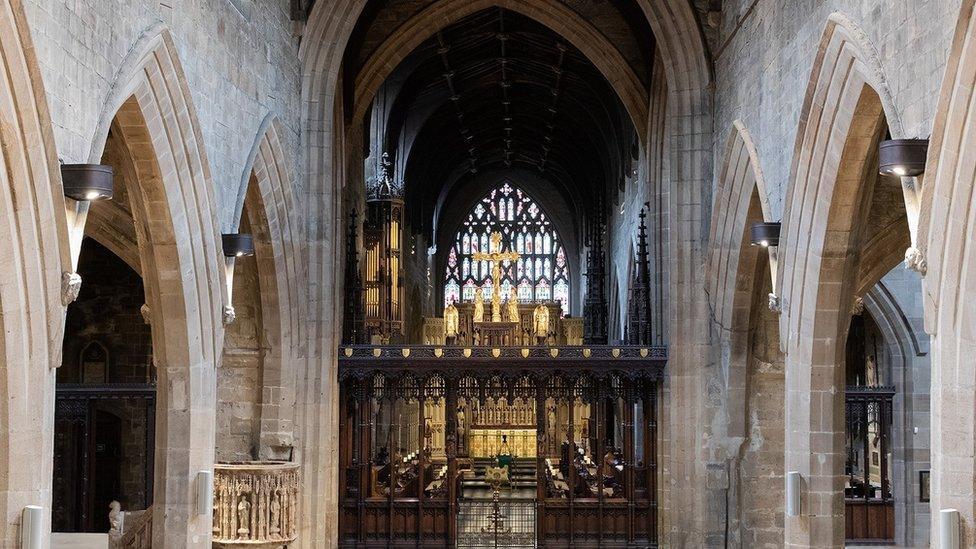
- Published6 February 2019

- Published7 September 2018
